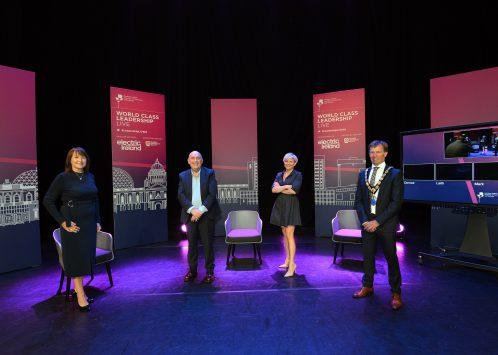By Ian Henry, President, Northern Ireland Chamber of Commerce and Industry
The coronavirus pandemic has been a seismic shock to the economy – and as more and more of our members continue to reopen, we are under no illusions that things will go back to “business as usual” any time soon.
In fact, any plans to turn back the clock, to simply restore what went before, would be insufficient. A cross party, cross departmental vision and road map from the NI Executive has never been more needed. This is an opportunity for real change – and the only way to re-kindle business and consumer confidence is to demonstrate an absolute and unshakeable focus on boosting the economy over the coming months.
Any such strategy should be developed by government, in partnership with business, education, the social economy and unions. The areas to be addressed remain as they did before – skills, infrastructure, growing exports and reducing the cost of doing business – whilst any new strategy must also provide a swifter movement towards digitalisation and sustainability.
However, a major barrier to achieving this will be the enhanced levels of debt which the COVID-19 pandemic has created amongst businesses, meaning an investment in growth will be difficult or impossible unless the Government acts swiftly.
The banking sector has told Whitehall that many businesses have been encouraged to take on debt that they will not be able to afford as they emerge from the crisis with weakened balance sheets.
Economists also worry these loans will be a drag on the UK’s productivity in the medium term, with businesses less willing to invest in capital expenditure, skills training and growth because of this unsustainable debt.
To date, £38 billion of loans have been made available through the government-backed Bounce Back Loan scheme, the Coronavirus Business Interruption Loan Scheme (CBILS) and the Coronavirus Large Business Interruption Loan Scheme (CLBILS). We’ve also seen a number of lenders make additional working capital available to clients who do not qualify for the schemes. Locally, the Bounce Back Loan scheme is also helping small and medium-sized businesses to borrow between £2,000 and £50,000.
Industry body, TheCityUK, estimates that by March next year, there could be £100bn of unsustainable loans in place.
It is NI Chamber’s view that the financial support provided by the government has therefore been a case of ‘disaster delayed but not averted.’ Northern Ireland’s corporate indebtedness has risen as a result and it is critical that Government, banks and regulators work together with business communities to find solutions that help viable businesses recover and invest. Steps must be taken to incentivise consumer behaviour and monetary and fiscal policy must remain supportive for the foreseeable future. A ‘student loan’ type instrument, where repayments begin once revenues return to pre-crisis levels, is just one possible approach for smaller firms.
Whilst this is alarming, recent months have cemented relationships between business and government and have proven how quickly plans can be agreed and implemented when we work together. As we map the route through this, it is imperative that we continue to build on what are now strong, effective working relationships. Business leaders stand ready to do whatever it takes and I remain confident that our partners in government feel the same.


